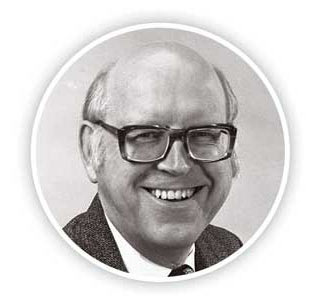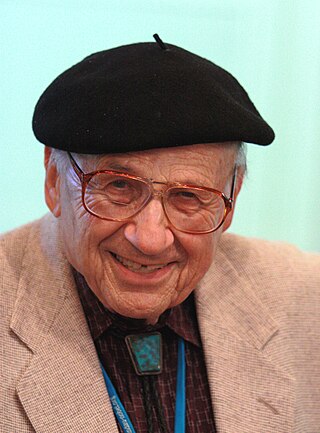Related Research Articles

Carnegie Mellon University (CMU) is a private research university in Pittsburgh, Pennsylvania, United States. The institution was established in 1900 by Andrew Carnegie as the Carnegie Technical Schools. In 1912, it became the Carnegie Institute of Technology and began granting four-year degrees. In 1967, it became Carnegie Mellon University through its merger with the Mellon Institute of Industrial Research, founded in 1913 by Andrew Mellon and Richard B. Mellon and formerly a part of the University of Pittsburgh.

Allen Newell was an American researcher in computer science and cognitive psychology at the RAND Corporation and at Carnegie Mellon University's School of Computer Science, Tepper School of Business, and Department of Psychology. He contributed to the Information Processing Language (1956) and two of the earliest AI programs, the Logic Theorist (1956) and the General Problem Solver (1957). He was awarded the ACM's A.M. Turing Award along with Herbert A. Simon in 1975 for their contributions to artificial intelligence and the psychology of human cognition.

Dabbala Rajagopal "Raj" Reddy is an Indian-American computer scientist and a winner of the Turing Award. He is one of the early pioneers of artificial intelligence and has served on the faculty of Stanford and Carnegie Mellon for over 50 years. He was the founding director of the Robotics Institute at Carnegie Mellon University. He was instrumental in helping to create Rajiv Gandhi University of Knowledge Technologies in India, to cater to the educational needs of the low-income, gifted, rural youth. He was the founding chairman of International Institute of Information Technology, Hyderabad. He was the first person of Asian origin to receive the Turing Award, in 1994, sometimes known as the Nobel Prize of computer science, for his work in the field of artificial intelligence.

The Mellon College of Science (MCS) is part of Carnegie Mellon University in Pittsburgh, Pennsylvania, US. The college is named for the Mellon family, founders of the Mellon Institute of Industrial Research, a predecessor of Carnegie Mellon University.

Walter Kohn was an Austrian-American theoretical physicist and theoretical chemist. He was awarded, with John Pople, the Nobel Prize in Chemistry in 1998. The award recognized their contributions to the understandings of the electronic properties of materials. In particular, Kohn played the leading role in the development of density functional theory, which made it possible to calculate quantum mechanical electronic structure by equations involving the electronic density. This computational simplification led to more accurate calculations on complex systems as well as many new insights, and it has become an essential tool for materials science, condensed-phase physics, and the chemical physics of atoms and molecules.
Ahmet Nihat Berker is a Turkish scientist, theoretical chemist, physicist and emeritus professor of physics at MIT. Currently, he is the acting Dean of Engineering and Natural Sciences in Kadir Has University, Turkey. He is the son of a notable scientist and engineer Ratip Berker, who was deceased on 17 October 1997. His wife, Bedia Erim Berker, is a professor of chemistry at Istanbul Technical University, and one of his sons, Selim Berker, is a professor of epistemology in the department of philosophy at Harvard University. His other son, Ratip Emin Berker, is an alumnus of Harvard and a PhD student in Carnegie Mellon School of Computer Science.

Krzysztof "Kris" Matyjaszewski is a Polish-American chemist. He is the J.C. Warner Professor of the Natural Sciences at the Carnegie Mellon University Matyjaszewski is best known for the discovery of atom transfer radical polymerization (ATRP), a novel method of polymer synthesis that has revolutionized the way macromolecules are made.
Daniel Berg is a educator, scientist and was the fifteenth president of Rensselaer Polytechnic Institute.
Bhakta B. Rath is an Indian American material physicist and head of the Materials Science and Component Technology of the United States Naval Research Laboratory (NRL), the corporate research laboratory for the United States Navy and the United States Marine Corps. He is the chief administrative officer for program planning, interdisciplinary coordination, supervision and control of research and is the associate director of research for Materials Science and Component Technology at NRL.

Peyman Givi is a Persian-American rocket scientist and engineer.

Elizabeth Wayne is an Assistant Professor of Biomedical Engineering and Chemical Engineering at Carnegie Mellon University and former Postdoc at the Center for Nanotechnology in Drug Delivery at the University of North Carolina at Chapel Hill. Wayne was a 2017 TED fellow and is a member of a number of professional societies, including the National Society of Black Physicists.
Randall M. Feenstra is a Canadian physicist. He completed a bachelor's degree in engineering physics at the University of British Columbia in 1978, followed by his master's and doctorate in applied physics at the California Institute of Technology. From 1982 to 1995, he was a research staff member at the IBM Thomas J. Watson Research Center in Yorktown Heights, New York. Since 1995, he has taught at Carnegie Mellon University, where he conducts research in semiconductors.
Barry Ralph Holstein is an American physicist. He is an elected Fellow of the American Physical Society, recipient of the 2019 Herman Feshbach Prize in Theoretical Nuclear Physics, and current editor of the peer-reviewed journal the Annual Review of Nuclear and Particle Science.
Sara A. Majetich is an American physicist and Professor of Physics at Carnegie Mellon University. Her work considers magnetic nanoparticles and nanostructures for application in spintronic devices. She is a Fellow of the American Physical Society and the Institute of Electrical and Electronics Engineers.
Rachel Goldman is an American scientist. She is professor of materials science and engineering, electrical engineering and computer science, and physics at the University of Michigan where she has been a faculty member since 1997. She also serves as the associate director of applied physics at the University of Michigan since 2010.
Adam Leibovich is an American theoretical physicist. He is a full professor and the Betty J. and Ralph E. Bailey Dean of the Kenneth P. Dietrich School of Arts and Sciences and the College of General Studies at the University of Pittsburgh. His research is primarily in quantum chromodynamics (QCD) and the application of effective field theory to problems of hadronic physics, particularly particles containing one or more heavy quarks. Leibovich also has worked on gravitational wave physics. He was elected a fellow of the American Physical Society in 2017 and a fellow of the American Association for the Advancement of Science in 2018.
Lane Wyatt Martin is an American materials scientist and engineer specializing in complex oxide thin films, their physics and properties, and applications of the same. He is best known for his work on ferroelectric and multiferroic thin films. Currently he is a Robert A. Welch Professor of Materials Science and NanoEngineering, Chemistry, and Physics and Astronomy, and serves as the Director of the Rice Advanced Materials Institute (RAMI) at Rice University.
Lynn Walker is a professor at the Department of Chemical Engineering and Materials Science, University of Minnesota. Her research considers the rheology of complex fluids and how nanostructure impacts the behavior of complex systems. She is a Fellow of the American Institute of Chemical Engineers, the Society of Rheology, and the American Physical Society.
Scott Dodelson is an American physicist. He is a professor of physics at Carnegie Mellon University and chair of its physics department.
Shelley Lynn Anna is an American chemical engineer and experimental fluid dynamics researcher who studies droplets, multiphase flow, and the effects of surfactants in microfluidics, the rheology of extensional and interfacial flows, and microscale transport. She is a professor of chemical engineering and associate dean for faculty and graduate affairs and strategic initiatives in the Carnegie Mellon University College of Engineering.
References
- ↑ "Stephen Garoff". Carnegie Mellon University Department of Physics. Retrieved 24 July 2022.
- ↑ "APS fellow archive". American Physical Society. Retrieved 24 July 2022.